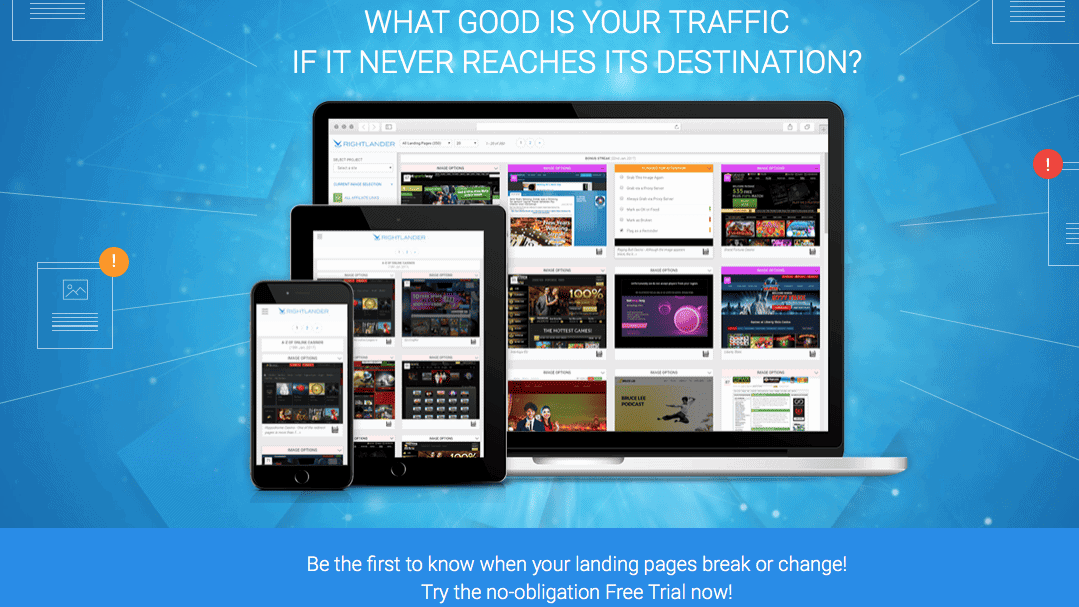Feature Interview : RightLander.net with Ian Sims

Providing both affiliates and operators with landing page monitoring services and regular, automated affiliate website compliance scans. Rightlander has an important place in the continually changing landscape for affiliates.
The group’s owner Ian Sims spoke to Affiverse about a whole host of subjects impacting affiliates in the future, including how he developed Rightlander and the role affiliates have to play in social diligence.
____________________________________________________________________
Affiverse: Hi Ian, you have been in affiliate marketing for a number of years. Why have you developed Rightlander now?
Ian Sims: In 2016 I received an offer for my affiliate network which was too hard to turn down. One of the side-effects was a no-compete clause but being both a developer and someone who loves working in this industry, there was no way I wanted to leave the industry and besides, I had developed a very useful tool for myself as an affiliate that I knew other affiliates would really appreciate.
So I decided to take this tool and turn it into a product: Rightlander. It was built initially as a rudimentary tool to monitor the landing pages and deep links that I sent my traffic to. I’d realised that these often changed or broke and like most affiliates, I wouldn’t know unless I regularly checked them manually, which I didn’t. Rightlander was built to go out overnight, scan sites, crawl affiliate links and takes screenshots of all the landing pages while collecting the data such as redirect paths, load times and issues, sending alerts to the affiliate when problems occur.
I have quite a few of the top affiliates in our industry signed up now and the response has been overwhelmingly positive. So much so that I have now added a compliance module which goes live in January and will help a lot of affiliates and operators to assess and assist in monitoring and maintaining affiliate website compliance with the regulatory authorities.
AI: Put simply, 2017 has been an interesting year of change for affiliate marketing. What has been your take on 2017 developments, and what should be prioritised by affiliates and operator stakeholders in 2018?
IS: In the first half of 2017, all the talk was about M&A. Companies like XL Media, Catena, Kax Media, Better Collective and others have been growing by acquisition and a number of “smaller” affiliates I have spoken to have been really worried about the future. Then in the second half of the year, the issue of compliance reared its head.
You could argue that the two combined makes life harder for affiliates and in the short term, it certainly presents unique challenges. But the latter has also presented an opportunity for those who want to take on those challenges IMO. The operators are going to need to trust their affiliates going forward and while most savvy business people know that relationships are important in business, this now takes on a whole new dimension.
Those affiliates that are prepared to engage in the compliance process, go and meet the operators and really get involved in building (mutually beneficial!) relationships and can show operators that they can be trusted – both professionally and emotionally – stand to reap the benefits.
Operators have already started to shed the affiliates they don’t feel comfortable with, resulting in smaller but much more manageable programs. This may well mean better deals and offers for the affiliates that meet the criteria and with some potentially very positive side effects: less affiliates means less competitors and this could well lead to more exposure and better rankings. Compliance should also spell the end for many black hat and “rogue” affiliates which again should help authoritative, trusted affiliates gain traction.
AI: What defined role do affiliates have to play in social due diligence? Are affiliate failures, simply due to rogue players, or does the nature of the industry need to be readdressed?
IS: The best thing that could happen to the industry IMO is now happening: it’s being forced to address bonus policies and it’s reliance on human greed to attract players. It’s been the Achilles Heel of the industry for years and my feeling is that it has long needed to shed this burden to move forward.
Most of the operators I have spoken to would rather not do bonuses anyway but feel they have little choice in order to remain competitive. I haven’t really ever subscribed to that notion but my knowledge is more from the player side. Take away the bonuses and you will lose a lot of the player fraud. This would help cut costs and mean that more money could be channeled into creating a better player experience.
Regarding the social due diligence side, affiliates have to realise that one bad apple could spoil it for everyone. If a bad affiliate procures players in a non-compliant way underhandedly, don’t be surprised if that operator gets a hefty fine and decides to close down their affiliate program. They can’t afford to lose their licence. Affiliates that spot other affiliates doing this would be foolish not to take some sort of (responsible) action to prevent this.
Look out for part two of the interview, which will be published on Affiverse tomorrow.






